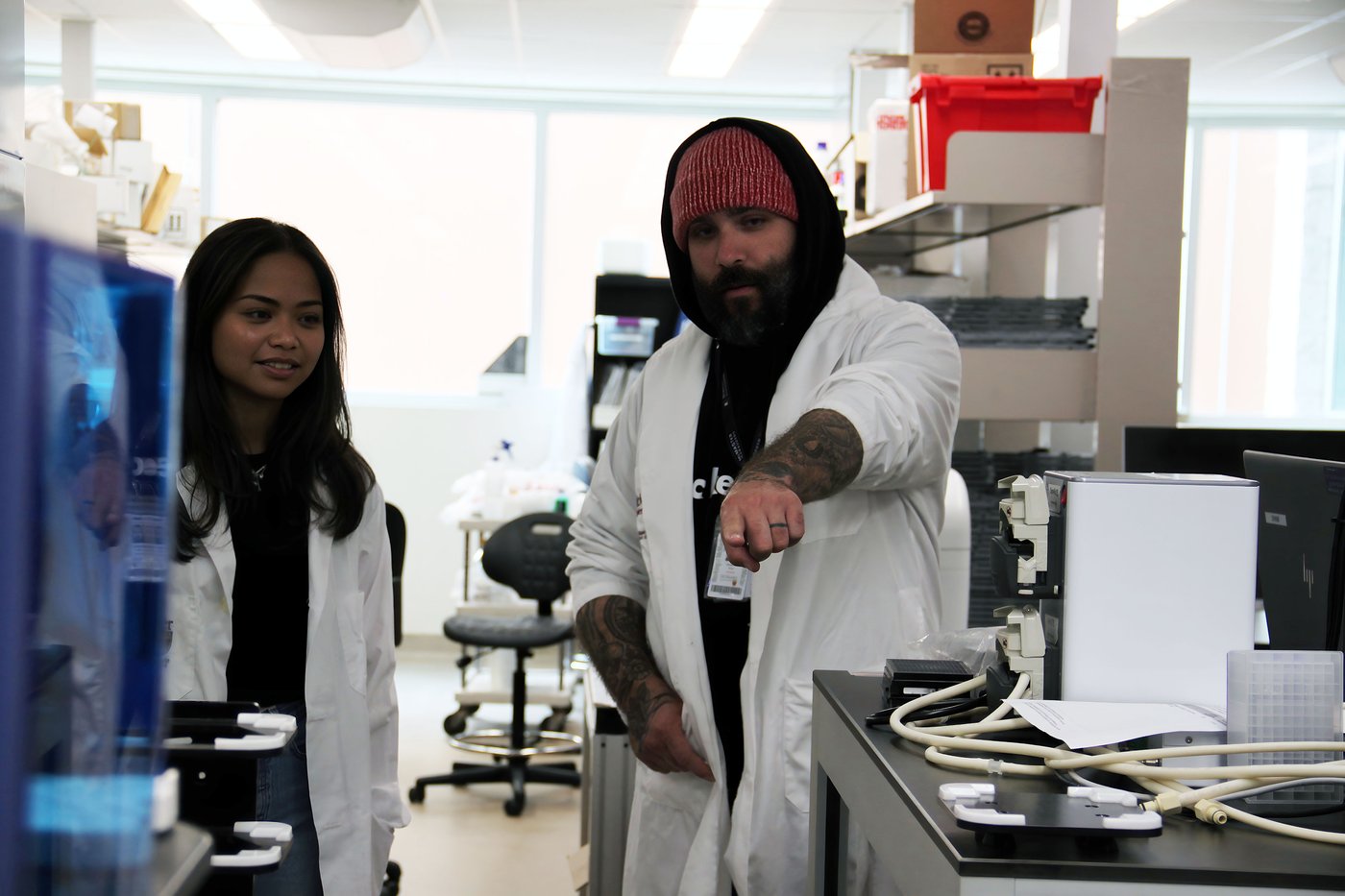Science
AI Accelerates Development of Novel Antibiotic for Bowel Disease

A researcher from McMaster University has harnessed the power of artificial intelligence to potentially revolutionize antibiotic treatment for Crohn’s disease and inflammatory bowel disease. Jon Stokes and his team, collaborating with partners from the Massachusetts Institute of Technology (MIT), have successfully isolated a new antibiotic treatment in a significantly shorter timeframe than traditional methods.
Typically, the development of a new antibiotic can cost millions of dollars and take several years to complete. Through the use of AI sequencing, Stokes’s lab accomplished the initial stages of this process in just six months, incurring costs of approximately $60,000. This advancement not only highlights the efficiency of AI in drug discovery but also its potential to reduce financial burdens associated with pharmaceutical research.
Importance of AI in Medical Research
Wyatt Tessari L’Allié, founder of AI Governance and Safety Canada, commended the application of AI in this context, viewing it as a positive development for healthcare. He emphasized the importance of maintaining rigorous oversight, stating that while AI can expedite processes, it is crucial for professionals to verify the results generated by these technologies.
Currently, Canada faces one of the highest rates of inflammatory bowel disease globally, affecting a significant portion of the population. Unfortunately, there is no known cure for these conditions, making the pursuit of effective treatments essential. The innovative approach taken by Stokes and his team could pave the way for new therapeutic options that address these serious health issues.
Despite the promise shown by this AI-driven research, Tessari L’Allié pointed out the lack of comprehensive AI legislation in Canada, particularly concerning its application in healthcare. Regulations surrounding medical AI currently fall under the jurisdiction of Health Canada, which evaluates each case individually. This regulatory landscape is critical as the integration of AI technologies continues to expand within the medical field.
This groundbreaking work by McMaster University, as reported by The Canadian Press, not only showcases the potential of AI in creating new medical solutions but also highlights ongoing challenges in ensuring safe and effective application in healthcare settings. The findings underscore the need for continued investment in AI research and the development of robust regulatory frameworks to guide its use.
As the world watches, the implications of this research extend far beyond the laboratory, promising hope for patients suffering from Crohn’s disease and other inflammatory bowel diseases. The engagement of institutions like MIT and Canadian universities in this vital area of research demonstrates a collaborative effort to tackle pressing health concerns through innovative technology.
The report detailing these developments was first published on October 5, 2025, marking a significant milestone in the intersection of AI and medical research. As advancements continue, the healthcare landscape may be poised for transformative change.
-

 Politics4 weeks ago
Politics4 weeks agoSecwepemc First Nation Seeks Aboriginal Title Over Kamloops Area
-

 World5 months ago
World5 months agoScientists Unearth Ancient Antarctic Ice to Unlock Climate Secrets
-

 Entertainment5 months ago
Entertainment5 months agoTrump and McCormick to Announce $70 Billion Energy Investments
-

 Science5 months ago
Science5 months agoFour Astronauts Return to Earth After International Space Station Mission
-

 Lifestyle5 months ago
Lifestyle5 months agoTransLink Launches Food Truck Program to Boost Revenue in Vancouver
-

 Technology3 months ago
Technology3 months agoApple Notes Enhances Functionality with Markdown Support in macOS 26
-

 Lifestyle3 months ago
Lifestyle3 months agoManitoba’s Burger Champion Shines Again Amid Dining Innovations
-

 Top Stories2 months ago
Top Stories2 months agoUrgent Update: Fatal Crash on Highway 99 Claims Life of Pitt Meadows Man
-

 Politics4 months ago
Politics4 months agoUkrainian Tennis Star Elina Svitolina Faces Death Threats Online
-

 Sports5 months ago
Sports5 months agoSearch Underway for Missing Hunter Amid Hokkaido Bear Emergency
-

 Politics5 months ago
Politics5 months agoCarney Engages First Nations Leaders at Development Law Summit
-

 Technology5 months ago
Technology5 months agoFrosthaven Launches Early Access on July 31, 2025





















